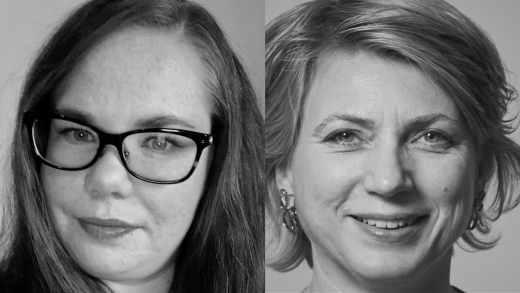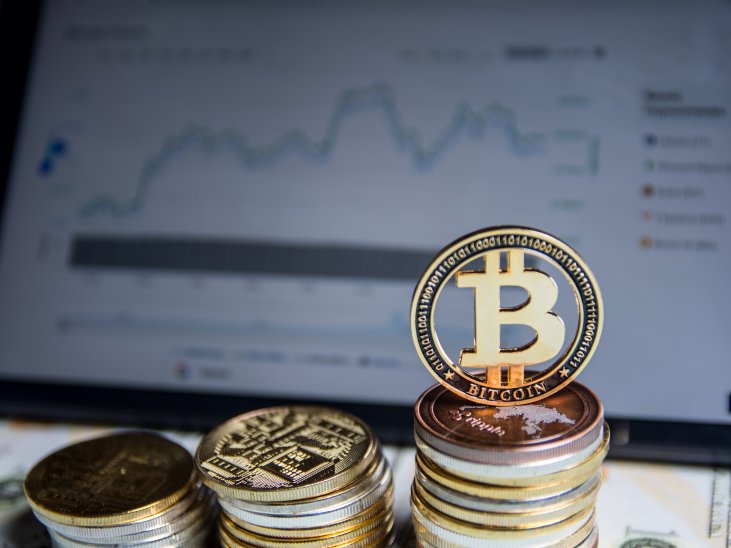Why data sovereignty is the cornerstone of digital trust in the transactional era

Trust is the essential oil needed to make data flow in today’s transactional era. However, privacy and security concerns mean that many people and organisations are increasingly unwilling to share their data. MyData Global and INNOPAY both believe that data sovereignty forms the cornerstone of digital trust. Making data sovereignty a key design principle will stimulate data sharing as the basis for enabling everyone – not just the big tech giants, but also all other businesses, organisations and especially citizens – to reap the true benefits of personal data and the transactional era. In this interview, Viivi Lähteenoja (deputy general manager at MyData Global) and Mariane ter Veen (director data sharing at INNOPAY) explain more about their efforts to help shape a positive future for the data economy.
Why did INNOPAY and MyData Global decide to join forces on the topic of data sharing?
Viivi: “MyData Global is a mission-based global nonprofit that has been facilitating a global network and organising a series of international conferences since 2016 to promote our aim – which is to create a fair, sustainable and prosperous digital society in which people are in charge of access to their data and benefit from how that data is used. When 600 people attended the first MyData conference, there was a sense of a community becoming aware of itself – that there are others out there in the world who think the same – and that idea has continued to gain traction ever since. We got to know INNOPAY through our mutual involvement in a number of projects, including conferences on the human-centric data economy. In striving to empower people with actionable rights to complement data protection rules, our work has clear synergies with what INNOPAY is trying to achieve. We also both share a strong belief in multi-stakeholder collaboration so that everyone benefits: when one of us does well, we all do well.”
Mariane: “At INNOPAY, we are indeed very closely aligned with the missions and goals of MyData Global. As an internationally active consulting firm, we’re helping companies worldwide to embrace the full potential of the new transactional era. We believe this can only be done by creating a world in which data sovereignty is a key design principle – and we can convey that message more effectively if we do it jointly, which is why we are excited to be working closely with MyData Global.”
What exactly is data sovereignty, and why is it so important?
Mariane: “Data sovereignty means giving people and organisations more control: to decide who has access to their data, under what conditions and for what purposes, as well as the right and possibility to revoke that access at any time. Right now, the world is undergoing a digital transformation in which every interaction is becoming a transaction: every ‘like’ on Facebook represents value, every purchase on an e-commerce website is preceded by numerous clicks that each involve some kind of data exchange. And with the expansion of the internet and IoT, the number of transactions is set to grow exponentially. These new kinds of values can form the basis for new business models – but society and the business world are not ready for it yet! That’s why it’s so important that we move away from the current ‘winner takes all’ thinking and create a world in which everyone – people and organisations alike – can trust the reliability, safety and security of digital transactions.”
Are citizens currently aware of the topic of data sovereignty? What are people’s attitudes to data and how are they changing?
Viivi: “Data has been getting some bad press recently, what with the Cambridge Analytica scandal, various data leaks and the privacy discussions around things like facial recognition and coronavirus contact tracing apps. In a way, that has been hugely beneficial in terms of raising people’s awareness about how their data is used online every day. However, although this has helped to address issues around ignorance and apathy regarding personal data, the narrative all too often focuses on the things that can go wrong, and some people have become scared to share their data at all. Whereas we believe that data sharing holds huge potential for good as well. The fair use of personal data can create enormous value… for people, customers and society as a whole.”
Mariane: “Exactly! Right now, consumers only seem to have a ‘negative’ choice: if they don’t like the way their data is treated, the only option is to ‘leave’ the platform or to not use the service. Discussions about the way forward seem to be mainly focused on introducing more regulations rather than a positive approach. Now is the time for organisations to focus on developing solutions that offer real benefits. Just think of the possibilities of personalised medicines, for example, or how great it would be if you could easily take your connections with you if you want to switch from one social media platform to another. I also feel it’s important to point out here that we don’t discriminate between personal data and business-to-business or B2B data – that’s an artificial distinction. Even B2B transactions inevitably involve people too, whether customers or employees. Ultimately, we both want to help companies realise that they don’t have to be afraid to use personal data; they just have to transform the way they deal with it – but so far there hasn’t been an effective means to do so. That’s why we need to create a soft infrastructure. Only then will organisations be able to build the necessary trust so that more people become willing to share their data.”
So how can organisations build the necessary trust to stimulate data sharing?
Viivi: “Showing that they use data ethically is the most beneficial way for organisations to build trust-based relationships with customers and other organisations. There’s still work to be done in terms of business models, enabling regulation and legislation, technological solutions and societal attitudes, but we see steps being taken in the MyData community every day.”
Mariane: “By the way, we’re not talking about data ownership here. The issue isn’t who owns the data, but rather who has the rights to access it and for what purpose, and that needs a soft infrastructure to facilitate it. Unlike the Industrial Revolution, which has left us dealing with the downsides such as pollution and the environmental impact around a hundred years later, we are still at the start of today’s ‘Data Revolution’. So we have the chance to eliminate the downsides – such as data pollution, misuse of data, the data benefit balance tilting too far in the tech giants’ favour – by making data sovereignty a key design principle. This is a unique opportunity to act now and shape the future so that organisations can build competitive propositions which allow us all to reap the benefits without such problems.”
Viivi: “It really is a paradigm shift that we’re looking to achieve. Although no one knows exactly how the world will look in ten years’ time, we share INNOPAY’s conviction that we now have the opportunity to affect how things will unfold.”
How do you expect the recently introduced EU Data Strategy to help accelerate the execution of the data economy?
Viivi: “MyData’s thinking is very solidly rooted in the European value base and a holistic view of people as citizens, active agents with the will and capacity to make life better through the use of data. That differs from the Silicon Valley view and the platform model, where people are often seen primarily as market actors – defined by their ability to buy and sell to participate in the market.”
Mariane: “And then there’s the more state-led model in countries such as Russia and China: ‘You can share data but we decide how’.”
Viivi: “That’s right. In contrast, based on European values, we take the human-centric point of view that people and data about them are not just an asset to be traded. So after many years of hard work building by countless pioneers awareness of this issue in Brussels, it was very rewarding for us to see that the recently introduced EU Data Strategy has put the human being at centre of the data about them. In fact, on page ten of the document, it explicitly mentions MyData as a promising initiative for allowing individuals to gain value from data about them and to exercise rights of control over access to their data. Therefore, we believe that the EU Data Strategy has the potential to accelerate the execution of the data economy as we would like it to be shaped.”
Mariane: “In addition to supporting these important European values, the EU Data Strategy provides a boost for initiatives that are driving data sovereignty. Real-life examples such as iSHARE in the logistics sector and MedMij in healthcare already show how you can create trust by developing a soft infrastructure to give organisations and people control over the access to data. Trust is the essential oil we need to make data flow in the transactional era. That will form the foundation on top of which organisations can build competitive propositions and new business models that offer value in the future. We’re seeing the emergence of a growing number of high-potential initiatives across Europe, thanks in part to support from the EU Data Strategy.”
But what does all this actually mean for businesses? What can and should they do?
Viivi: “Data sharing is a very complex issue involving business, legal, technical and societal aspects. It’s almost impossible for organisations to solve them alone. With nearly 90 organisation members and over 600 individual members across on six continents, the MyData community network offers access to relevant experts around the world, so organisations don’t need to reinvent the wheel, as it were. We regularly work with data professionals within organisations to help them transform how they deal with personal data in order to build trust and generate value.”
Mariane: “As INNOPAY, we have one clear message for organisations: You can start right now! We believe that we can no longer remain in a world of silo-based thinking and benchmarking. If you really want to reap the benefits, you have to look beyond the boundaries of your organisation and consider your whole ecosystem. Ask yourself ‘What data do I need, how can I access that data in an ethical way, and how can I give customers more control in that process?’. Based on our 20 years of experience with data sharing, we’ve developed a 7-step approach that is already helping numerous clients to make important decisions about their data-sharing strategy every day. It covers things like internal awareness and capabilities, process optimisation and alignment in the value chain, and transparent communication to truly embed data sovereignty in the organisation. No matter what happens over the next ten years, there’s no scenario in which organisations will regret making data sovereignty a key design principle so there’s no reason not to do it – and they can start today!”
To discuss how you can start embedding data sovereignty in your organisation, please feel free to reach out to Mariane at mariane.terveen@innopay.com.
Mariane and Viivi will also be hosting a webinar on data sovereignty on Thursday 25 June. Click here for more information and registration.






